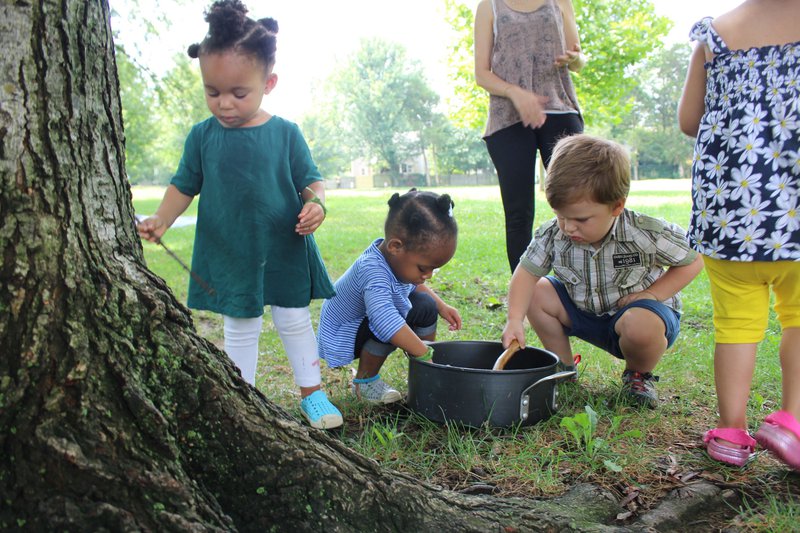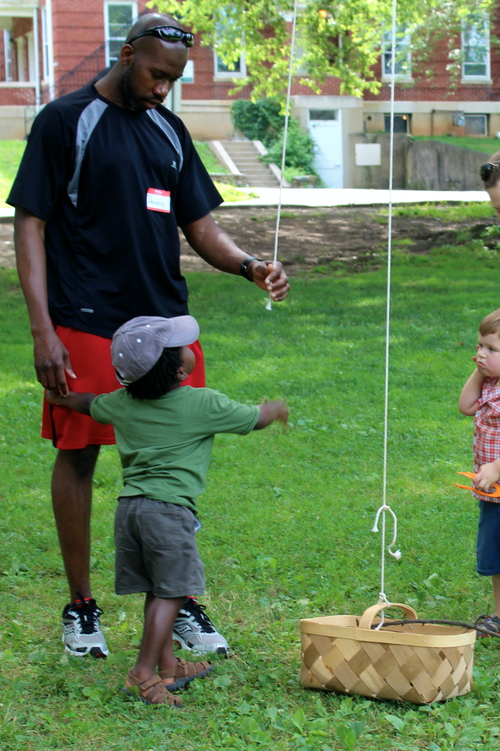Why We Invested: Tinkergarten

Tinkergarten is taking education technology outdoors, supporting a play-based, early learning movement that is helping thousands of children in nearly every US state become more ready for kindergarten.
It may be surprising, but one-third of American children are not ready for kindergarten by age five, with a disproportionate number of those being children from low-income backgrounds. In fact, the US ranks near the bottom of OECD countries when it comes to early learning enrollment for children ages 3–5.
Even when parents are able to find pre-K learning opportunities for their children, they may be hard-pressed to find ones that are high quality. Early learning teaching staff are often under-valued and under-compensated, leading to high staff turnover — more than 30 percent annually, according to the National Association for the Education of Young Children. Yet, quality early childhood learning opportunities, marked by staff stability, can make all the difference when it comes to success in K-12 education and beyond. Another important factor in early learning is outdoor, active play, which stimulates brain development, motor skills, creativity, and problem solving.
From One Leader to 700
Tinkergarten was created to provide the outdoor, active play experience that children need for complete development and kindergarten readiness, while also empowering teachers — which it calls “leaders” — to take a far more active role in their work, increasing job satisfaction and staff stability.
Tinkergarten uses technology to help hire, train, and support leaders, as well as to track learning outcomes. This novel use of education technology has led to rapid scale: From its launch by Meghan and Brian Fitzgerald in early 2015, Tinkergarten has grown from one class taught by Meghan in a public park in Brooklyn to encompass 700 leaders with classes in 48 states, serving more than 50,000 families.
This successful approach is a major reason Omidyar Network invested in Tinkergarten. We first funded the company in a seed round in 2015, and now are participating in a $5.4m Series A funding round that will accelerate the company’s expansion nationwide.
Quality Curriculum, Distributed Workforce, and Scalability

Tinkergarten is built around three key elements.
The first is its quality play-based curriculum, focusing on the needs of young children through a combination of parental nurturing engagement and exploration of the world through senses. From birth to age 5, a person’s brain develops at a faster pace than it will at any other stage of life; some 90 percent of physical brain development occurs in the first three years of life. Play acts as an important catalyst in that development, stimulating neural connections, which then leads to the development of gross motor skills (like running or jumping) and fine motor skills (like holding a pen). Play also helps children with language development, socialization, creativity, critical thinking, expressing emotions, and solving problems.
The second is an innovative distributed workforce model. Tinkergarten leaders turn into entrepreneurs for open-ended play learning. It creates a powerful connection between leaders and the program: As Beth Ashley, a leader in Brooklyn notes, “I have a whole new definition of what work can be. I spend my time helping kids and parents in my community, and I’m learning more about myself than I ever have. I’m outdoors more, I get exercise, get messy and laugh, and my son tags along with me — I can’t believe I get paid to do this!”
Finally, Tinkergarten’s scalable technology model is very low tech on the front end, yet makes use of best-in-class technology for hiring, selecting, training, marketing, scheduling, and tracking learning outcomes. This makes it possible for the company to bring its model to new communities rapidly.
National Demand across Diverse Communities
In late 2015, Tinkergarten was only active in a few, generally higher-income areas around New York, Boston, Los Angeles, and San Francisco. But it was clear both Tinkergarten’s founders and its leaders shared a vision of bringing this model to a much broader audience.
Since we initially invested 18 months ago, Tinkergarten classes have spread to nearly every state, and will soon have a presence in all 50. The model can successfully scale despite the wide range of early education systems in place in different states (some, like Oklahoma, have universal pre-K access) or differences in income or social mobility. Tinkergarten is even growing across vastly different types of weather conditions; year-round outdoor play in Hawaii is less challenging than it is in New Hampshire.
It is clear that play-based early learning is a universal concept and one that Tinkergarten has been able to spread across many communities through its quality curriculum, technology platform, and flexible workforce model. We’re excited at Omidyar Network to see Tinkergarten contribute to defining a more holistic focus for quality early childhood education, including an emphasis on creativity and critical thinking, as well as parent or caregiver nurturing engagement.
Isabelle Hau is a board member of Tinkergarten.